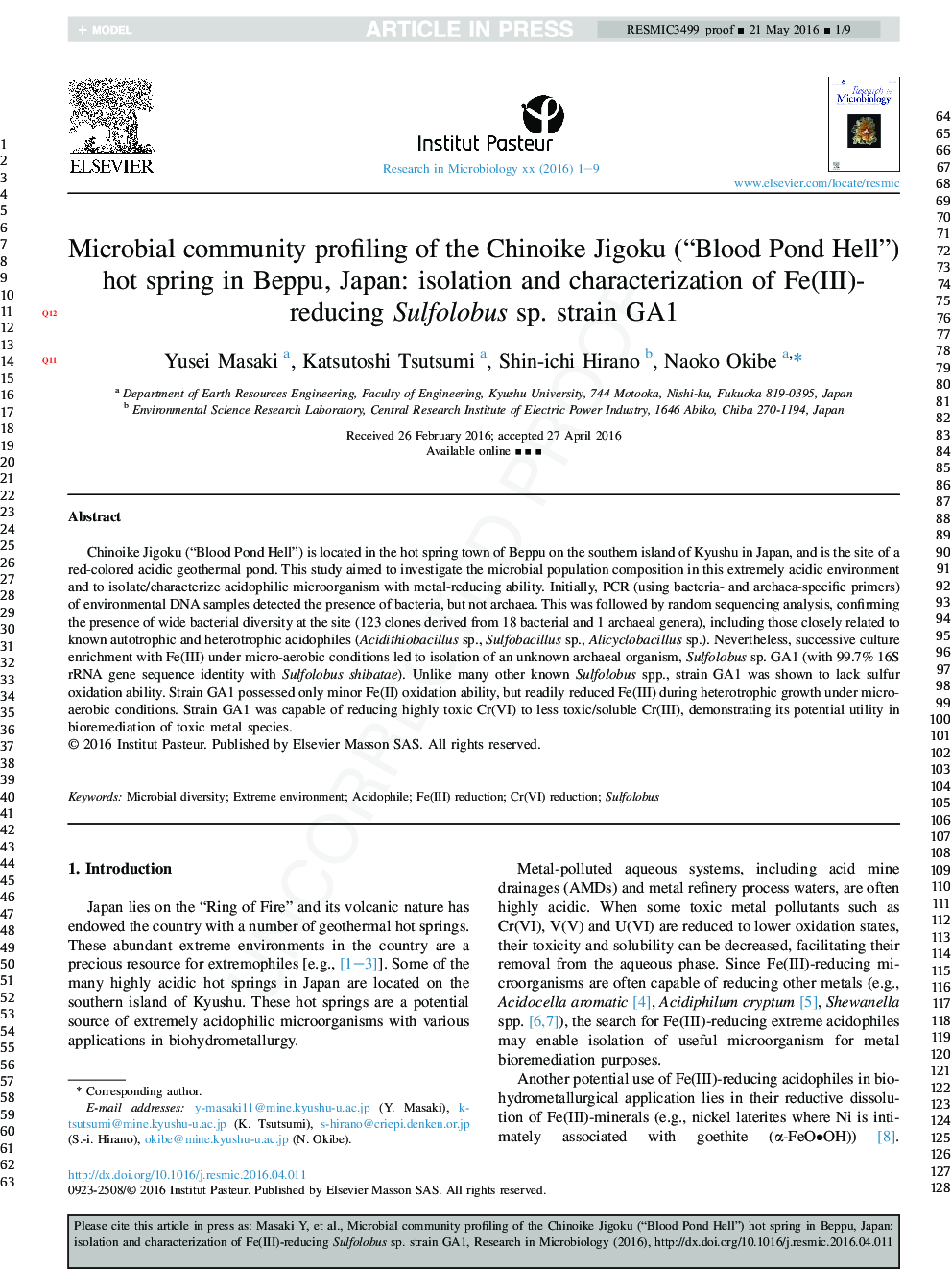| Article ID | Journal | Published Year | Pages | File Type |
|---|---|---|---|---|
| 6288028 | Research in Microbiology | 2016 | 9 Pages |
Abstract
Chinoike Jigoku (“Blood Pond Hell”) is located in the hot spring town of Beppu on the southern island of Kyushu in Japan, and is the site of a red-colored acidic geothermal pond. This study aimed to investigate the microbial population composition in this extremely acidic environment and to isolate/characterize acidophilic microorganism with metal-reducing ability. Initially, PCR (using bacteria- and archaea-specific primers) of environmental DNA samples detected the presence of bacteria, but not archaea. This was followed by random sequencing analysis, confirming the presence of wide bacterial diversity at the site (123 clones derived from 18 bacterial and 1 archaeal genera), including those closely related to known autotrophic and heterotrophic acidophiles (Acidithiobacillus sp., Sulfobacillus sp., Alicyclobacillus sp.). Nevertheless, successive culture enrichment with Fe(III) under micro-aerobic conditions led to isolation of an unknown archaeal organism, Sulfolobus sp. GA1 (with 99.7% 16S rRNA gene sequence identity with Sulfolobus shibatae). Unlike many other known Sulfolobus spp., strain GA1 was shown to lack sulfur oxidation ability. Strain GA1 possessed only minor Fe(II) oxidation ability, but readily reduced Fe(III) during heterotrophic growth under micro-aerobic conditions. Strain GA1 was capable of reducing highly toxic Cr(VI) to less toxic/soluble Cr(III), demonstrating its potential utility in bioremediation of toxic metal species.
Keywords
Related Topics
Life Sciences
Immunology and Microbiology
Applied Microbiology and Biotechnology
Authors
Yusei Masaki, Katsutoshi Tsutsumi, Shin-ichi Hirano, Naoko Okibe,
